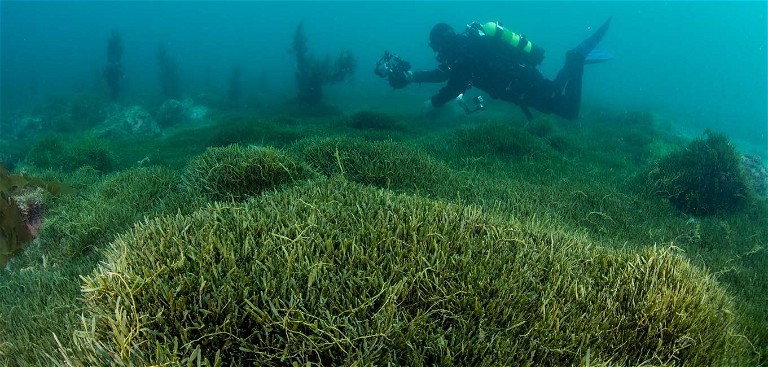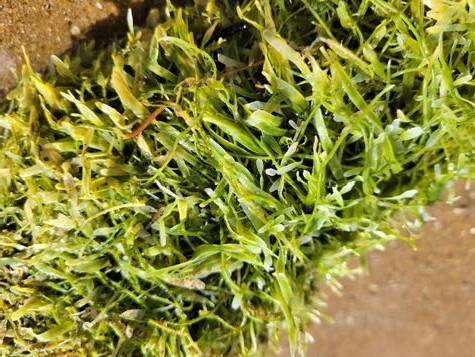PROTECTING OUR WATERS: STOP THE SPREAD OF EXOTIC CAULERPA
Information from Biosecurity New Zealand on how we can protect our coastal waters from the invasive seaweed exotic caulerpa.

The invasive seaweed, exotic caulerpa, can spread rapidly, forming dense mats, and is potentially threatening our native plants, fish and other wildlife.
Photo: NIWA/Irene Middleton.

Boaties, fishers and divers play an important role in preventing the spread of exotic caulerpa when out on the water.
Photo: Biosecurity New Zealand/Sid Wales.
As summer approaches, boaties and fishers need to support the fight against the invasive seaweed, non-native (exotic) caulerpa.
Exotic caulerpa first appeared in our waters in 2021 at Aotea Great Barrier Island. It has since been found at Ahuahu Great Mercury Island, Te Rāwhiti Inlet in Northland, off Kawau Island and at Waiheke Island.
It can spread rapidly, forming dense mats, and is potentially threatening our native plants, fish and other wildlife.
Biosecurity New Zealand, in partnership with mana whenua, councils, Department of Conservation and local communities, is working to manage the situation and is calling on everyone to help stop exotic caulerpa spreading.
Boaties, fishers and divers play an important role in preventing the spread when out on the water. These simple actions will have a big impact:
See weed: Before moving on, inspect your anchor, chain, and any fishing or diving equipment for seaweed.
Bag it: If you find any seaweed, remove it and securely bag or contain it to stop it spreading to other areas —the smallest piece can spread.
Bin it: If possible, take the seaweed ashore and dispose of it securely away from the beach – for example in your home rubbish or compost.
If you can’t do this safely, put it back in the water in the area it came from.
Legal rules (known as Controlled Area Notices) are in place at a number of affected locations, as are rāhui laid by local mana whenua. These rules are under review as the situation changes.
Visit www.biosecurity.govt.nz/ caulerpa for the most up-to-date maps of caulerpa-affected areas, legal controls, rāhui and photos.
If you’re boating, fishing and diving in the upper North Island this summer, understand where exotic caulerpa is, check the rules, and take the important action – ‘bag it, bin it’ – to help us stop the spread.
Report suspected sightings of exotic caulerpa – either at sea or on the beach – online at report. mpi.govt.nz or by phoning 0800 80 99 66.
If it’s on the shore, don’t move it. Don’t take any beach-cast home for disposal. Nature will manage this. But still report it by phone or online.
Remember: Out at sea? See weed? Bag it. Bin it.